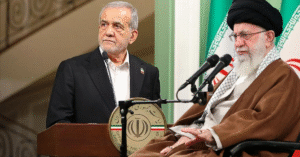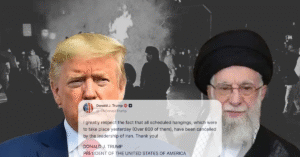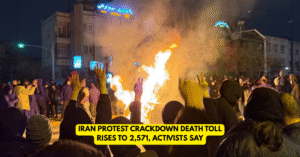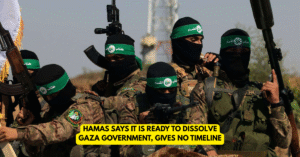Washington — The normally quiet campus of Microsoft turned into a potent scene of civil dissent this week when dozens of current and former employees, alongside community supporters, launched an impassioned protest. They accused the company of enabling the Israeli military’s surveillance of Palestinians via its Azure cloud platform—a claim that has intensified scrutiny and prompted an “urgent” internal review.
On Tuesday, the group No Azure for Apartheid occupied the East Campus Plaza, transforming it into what they called “The Martyred Palestinian Children’s Plaza.” They erected tents, installed memorial displays honoring Gaza’s casualties, and set up a symbolic negotiation table directly in front of company leadership, urging dialogue while demanding that Microsoft sever its military ties.
The protest escalated dramatically the next day. Nineteen people were arrested after spreading red paint—symbolizing bloodshed—across a giant Microsoft sign. Police say protesters resisted orders to vacate the premises and engaged in acts of vandalism, including blocking pedestrian walkways with upturned tables. No injuries were reported, but 18 individuals now face charges including trespassing, malicious mischief, resisting arrest, and obstruction.
Microsoft responded publicly by acknowledging the intensity of the latest demonstration and defending its commitment to human rights standards. The company confirmed it has enlisted the law firm Covington & Burling to conduct a thorough investigation into claims that its Azure platform was used by Israel’s military for mass surveillance—particularly storing phone call data from Palestinians in Gaza and the West Bank. Microsoft reiterated that its internal review had previously found no evidence of such misuse, but added that this new probe would examine more recent and specific allegations.
The unrest reflects eclipsing tensions within the tech giant—and across the sector—over how technology intersects with conflict zones. Earlier reports from The Guardian, +972 Magazine, and Local Call uncovered that Azure was being used by Israel’s Unit 8200 intelligence agency to store massive amounts of intercepted communication data. Following those reports, shareholder groups representing millions in investments urged Microsoft to improve its human rights due diligence.
Across social platforms, activists framed the protest as a matter of conscience: “Every second we wait, more people suffer in Gaza,” said one demonstrator. That urgency echoed through the crowd and into boardroom discussions, as external and internal pressures converge on a company long thought beyond geopolitics.






